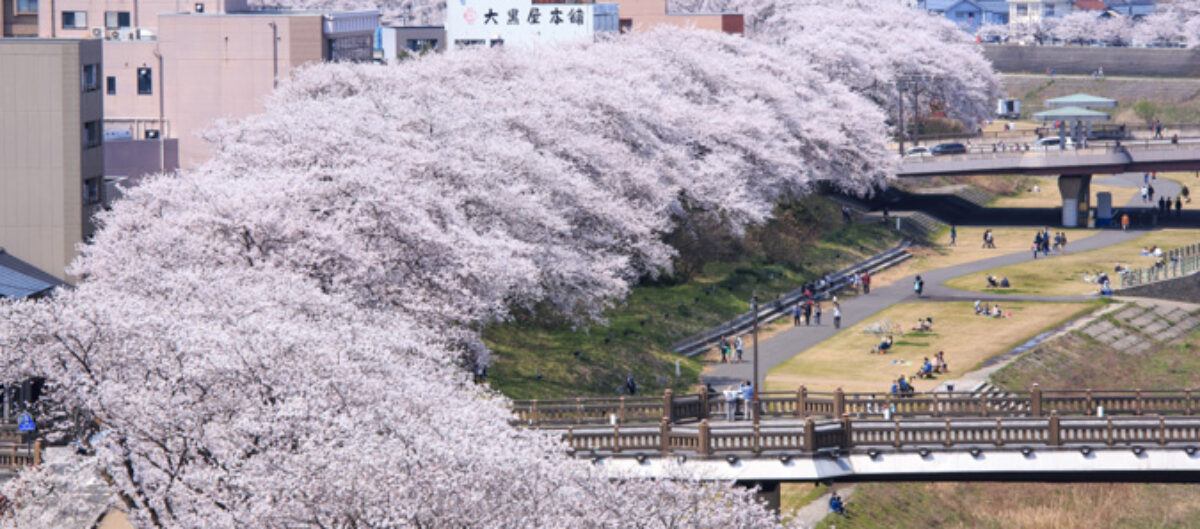





November/4/2018
Tachibana Akemi (橘 曙覧) was born in 1812 in Fukui City, Fukui prefecture, Japan. He was a poet and a scholar of classical Japanese. In my opinion, the characteristics of his poems are simplicity and honesty. One hundred and fifty years have passed since his death.
Among his poems, Solitary Pleasures(独楽吟) is very popular. There are 52 verses in Solitary Pleasures, and all of them are about the pleasures he felt.
For example, the following lines appear:
It is a pleasure when I talk with my best friends and split my sides with laughter.
It is a pleasure when I borrow a valuable book and open it for the first time.
It is a pleasure when I read books and find someone like me.
(Translated by Taru)
In 2012, there was a memorial lecture to celebrate Akemi’s 200th birthday in Fukui City by Robert Campbell, an Emeritus Professor of the University of Tokyo. My mother and I attended this lecture. Campbell talked about Tachibana Akemi, and he said that we, the citizens of Fukui, must memorize all of the verses in Solitary Pleasures. I was ashamed to hear that, because I only know a few of them.
In 1994, one of Akemi’s poems received worldwide attention. Bill Clinton, then-president of the United States, cited the following verse in a speech:
It is a pleasure
When, rising in the morning
I go outside and
Find that a flower has bloomed
That was not there yesterday.
(Translated by Donald Keene)
Bill Clinton said, “That verse is more than a century old, but its message is timeless.”

↑↑ He is Matsudaira Shungaku.
There’s one particular episode that shows Akemi’s character. Matsudaira Shungaku was a feudal lord of the Fukui clan at that time, and he admired Akemi very much. Shungaku asked Akemi to come to his castle and teach him poems.
However, Akemi sent a refusal in the form of a poem. He wrote, “I am a turnip flower. I look beautiful only when I bloom in rural fields.”
Interestingly, Shungaku accepted Akemi’s refusal by sending his own poem. He wrote, “Please bloom in the rural fields. I am not forcing you to agree with me.”
Shungaku emulated Akemi and made his own Solitary Pleasures poems as in the following:
It is a pleasure when it rains after a drought and I hear people’s joyful remarks.
(Translated by Taru)
Akemi lost both his parents at a young age, and his first three children died all too soon. These sad experiences might have made him appreciate ordinary daily things.
(References):
「こころ豊かに 橘曙覧を歩く」(上坂紀夫) (福井県)
「全訳註 独楽吟」(足立尚計)(福井市)
「150年後へのメッセージ 独楽吟」(福井市橘曙覧記念文学館)
「Anthology of Japanese Literature」(compiled and edited by Donald Keene)(Grove Press)

Thank you Taru for this informative piece. I found it through Google when searching for Tachibana Akemi and his poems.. The simplicity of his work appeals to me very much
Thank you very much for your comment, Jack. Tachibana Akemi isn’t famous in the world, but I think his poems are unique and nice.
Thank you Taru I write tanka and haiku and have been very moved by reading Akemi as translated by Burton Watson. I will look for Donald Keene’s anthology. Are you aware of any other English translators. My poems appear regularly in the English language tanka and haiku journals and your blog of Akemi is excellent
Dear Tim Dwyer,
Thank you for your comment.
I read a few of your poems online. I found “Morning Detour” to be a fascinating poem, with vivid imagery that really comes to life.
I understand that you’re looking for English translations of Akemi Tachibana’s poems. In the book Anthology of Japanese Literature (compiled and edited by Donald Keene, Grove Press), several of Akemi Tachibana’s Dokurakugin (Solitary Pleasures) are translated into English.
Mariko Sumikura has also translated Akemi’s poems into English. The English translations of his poems are available as e-books on Amazon under the title Poesy for My Own Pleasure.
https://discover.hubpages.com/literature/The-Crreativity-of-Japanese-Poet-Tachibana-Akemi-Scholar-and-Translator-David-Keene-and-Artist-Wesley-Yamaka
The website above is about Akemi Tachibana and may be helpful to you.
Masaoka Shiki, a very famous Japanese poet, wrote that Akemi is one of Japan’s greatest poets.
I’m glad to see that you have an interest in Akemi’s work.